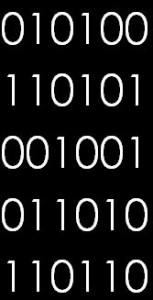Every refinement of software also creates more decision points. And with so many to choose from, its easy to get lost in the weeds, forfeiting the task it was originally designed to facilitate.
Apparently, some people collect new and extraordinary watches that are mostly cherished for their finish and uniqueness. A small cadre of watchmakers cater to this unusual and expensive form of collecting, building timepieces that are especially valuable for including a “complication” that increases their uniqueness. For example, a watch that shows something less obvious than moon phases might be prized.
Collecting these rare pieces is clearly a hobby for the rich, but it is also and useful analogy for the evolution of a lot of modern data and communication systems that we all use.
The arc of software development seems irrevocable: from practical and simple to complex and esoteric. The compulsion for complications supposedly gives users more power. Everything from Android Auto to the latest version of Windows “does more” by adding refinements and that require relearning features once easily mastered. Surely there is now a wristwatch that can be set to periodically extend a little hammer than will tap its owner on the wrist. What an ingenious complication, and how useless. I tend to have that reaction for version 10.3 of software that was far more focused and user-friendly when it was just version 2.3.
Microsoft’s ubiquitous Word is a good example. I have used it for years. But each new iteration seems to move it just a bit further from being an efficient writer’s tool. After eight books I still can’t claim that I’ve mastered the “auto” functions, page layout options, and probably a hundred other complications. The blue ribbon above this Word page that I am writing will let add diagrams, charts, SmartArt, icons, 3D models, pictures, word art, add-ins, cross references, equations, watermarks, and so on. But, of course, all of these features have to be formatted as well. I’ve easily spent a day formatting a single picture for a book. If putting together a bespoke magazine is in your future, Word has you covered. It has evolved a long way from being a blank slate to conveniently lay down and edit language. The assumption seems to be that somebody somewhere must clearly be waiting for the chance to drop in emojis, crossed out words, color charts, “wingdings”–whatever they are–not to mention five different shades of pink for the text.
 Here’s the point. It’s worth remembering that every refinement of a software function also creates more decision points. And with so many additions, its easy to get lost in the weeds of formatting and forget the core necessity of focusing on language use. Technical choices can move the sideshow of software settings into the spotlight as the main event, making the invention of creative sentences just an ancillary act. I’ve seen this a lot with my students: submissions elaborately designed and badly written.
Here’s the point. It’s worth remembering that every refinement of a software function also creates more decision points. And with so many additions, its easy to get lost in the weeds of formatting and forget the core necessity of focusing on language use. Technical choices can move the sideshow of software settings into the spotlight as the main event, making the invention of creative sentences just an ancillary act. I’ve seen this a lot with my students: submissions elaborately designed and badly written.
What we may need is a new theory of devolutionary development in the study of organizations to account for what is happening. Our tools don’t necessarily get better over time; many complications make them more difficult to efficiently use. I’ve heard more than a few say its easier to hop in their old truck to run a quick errand than the family’s new car, whose two computers are said now to hold 100 million lines of code. Again, it’s the idea that the car’s displays give us too many decision points. Who has time to keep eyes on the road when there are screens with scores of settings that invite adjustment?
There’s an older theory of “media convergence” that predicts the merging of old media forms into hybrids: radio programming based on recordings, or the merging of video and film production, or films that play like video games, or the modern smart phone that functions as a computer. But sometimes the early iteration of something is best. One way to account for the small renaissance in vinyl records is that they were made to do one thing pretty well. They play two audio tracks sitting on the nineteenth century tool of a record turntable. Sometimes we want the purity of the simpler thing.
![]()

